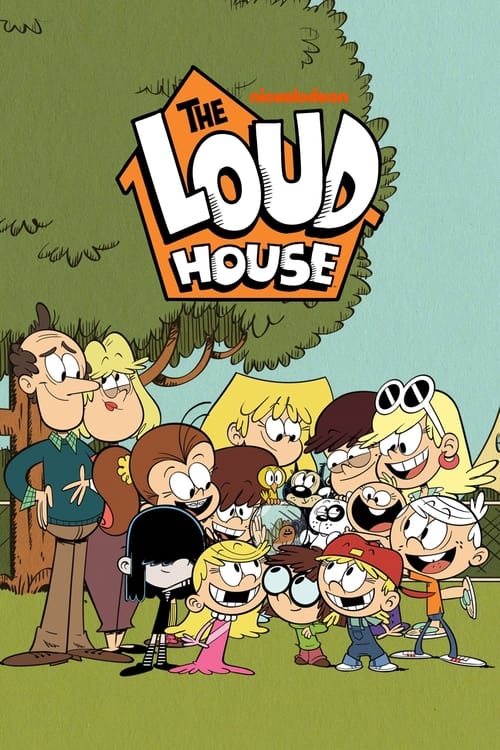
Ask Your Own Question
What is the plot?
Bluey and Bingo are playing in the living room when they decide to engage in a game that involves their dad, Bandit. They want to play a game where Bandit acts like a robot. Bluey enthusiastically explains the rules of the game to her dad, who is initially unsure but agrees to participate. The girls instruct him to act like a robot, which includes following their commands without question.
As Bandit begins to play along, he adopts a stiff posture and robotic voice, which delights Bluey and Bingo. They start giving him various commands, such as "dance" and "spin," and he humorously complies, exaggerating his movements to entertain them. The girls giggle and cheer him on, enjoying the playful dynamic of their father being a robot.
The game escalates as Bluey and Bingo come up with more complex commands. They instruct Bandit to perform tasks like picking up toys and making silly sounds. Bandit, fully embracing his role as "Daddy Robot," becomes increasingly animated, showcasing his creativity and willingness to entertain his daughters. The girls are thrilled by his antics, and the atmosphere is filled with laughter and joy.
However, as the game continues, Bandit starts to feel the strain of constantly following the girls' commands. He begins to express his fatigue, but Bluey and Bingo are so engrossed in the game that they don't notice. They continue to give him more commands, pushing him to perform increasingly silly and exhausting tasks. Bandit tries to keep up, but his energy starts to wane, leading to a humorous yet relatable moment of exhaustion.
Eventually, Bandit reaches a breaking point and humorously malfunctions, pretending to short-circuit. He collapses on the floor, and the girls are momentarily confused. They realize that their dad is tired and need to give him a break. This moment of realization leads to a shift in the game, as they decide to take care of "Daddy Robot" instead of commanding him.
Bluey and Bingo begin to "fix" Bandit, pretending to recharge him and give him a rest. They show concern for their dad, demonstrating their understanding of his needs. This change in dynamic allows Bandit to relax, and he enjoys the attention from his daughters as they care for him. The game transforms from one of commands to one of nurturing, highlighting the bond between the family.
As the episode concludes, Bandit, now recharged, playfully re-engages with Bluey and Bingo. They all share a moment of laughter, and the game evolves into a more collaborative playtime. The episode ends on a high note, with the family enjoying each other's company, showcasing the love and fun they share together.
What is the ending?
In the ending of "Daddy Robot," Bluey and Bingo successfully complete their game, and their father, Bandit, who has been playing the role of a robot, finally gets to take a break. The girls express their joy and satisfaction with the game, and Bandit, feeling exhausted but happy, shares a tender moment with his daughters, reinforcing their bond.
As the episode concludes, Bluey and Bingo are left feeling accomplished and content, having enjoyed their imaginative playtime with their dad, who has embraced his role wholeheartedly.
As the episode "Daddy Robot" draws to a close, the scene shifts back to the living room where Bluey and Bingo are still engaged in their imaginative play. The atmosphere is filled with laughter and excitement as the girls have been directing their father, Bandit, in his role as the Daddy Robot. Bandit, clad in a cardboard box with various buttons and a painted face, has been dutifully following their commands, albeit with a hint of exhaustion creeping in.
The girls, filled with energy, continue to give Bandit increasingly complex tasks. They instruct him to perform silly movements and respond to their commands with robotic phrases. Bandit, despite his fatigue, plays along, showcasing his dedication to making the game enjoyable for his daughters. His internal motivation is clear; he wants to be a fun and engaging father, even if it means pushing through his tiredness.
As the game progresses, Bandit's movements become slower, and he starts to show signs of weariness. The girls, noticing their father's struggle, begin to giggle at his robotic antics, but they also sense that he needs a break. In a pivotal moment, Bluey and Bingo decide to give Bandit a moment to recharge. They pause the game and express their appreciation for his efforts, acknowledging how much fun they've had playing together.
This moment of recognition is significant; it highlights the bond between the father and his daughters. Bandit, feeling valued and loved, smiles at them, his exhaustion momentarily forgotten. The girls, in turn, feel a sense of accomplishment, having successfully navigated their imaginative play while also caring for their father's well-being.
As the episode wraps up, the scene transitions to a quieter moment where Bandit, now free from the constraints of the robot costume, sits with Bluey and Bingo. They share a tender hug, reinforcing the emotional connection they have built through their play. The girls express their joy, and Bandit, despite his tiredness, feels fulfilled and happy, knowing he has created a memorable experience for his children.
In the final moments, the camera captures the three of them together, a picture of familial love and joy. The episode concludes with a sense of harmony, leaving the audience with the warmth of the family bond and the importance of play in nurturing relationships. Each character, Bandit, Bluey, and Bingo, ends the episode feeling content and connected, having shared a delightful experience that strengthens their family ties.
Is there a post-credit scene?
In the episode "Daddy Robot" from Bluey, there is no post-credit scene. The episode concludes without any additional scenes or content after the credits roll. The focus remains on the main storyline, which revolves around Bluey and Bingo engaging in imaginative play with their dad, Bandit, who takes on the role of a robot. The episode wraps up with the family enjoying their time together, emphasizing themes of creativity and the bond between parents and children.
What game do Bluey and Bingo play with their dad in 'Daddy Robot'?
In 'Daddy Robot', Bluey and Bingo play a game where their dad, Bandit, pretends to be a robot. The girls give him commands, and he humorously struggles to follow them, showcasing his playful side.
How does Bandit react to the commands given by Bluey and Bingo?
Bandit, as the Daddy Robot, enthusiastically follows the commands given by Bluey and Bingo, but he often adds his own comedic twist, which leads to funny and unexpected outcomes, highlighting his willingness to engage in their imaginative play.
What specific commands do Bluey and Bingo give to Daddy Robot?
Bluey and Bingo give Daddy Robot various commands such as 'dance', 'make a sandwich', and 'do a silly walk', each leading to humorous interpretations and actions from Bandit, which delight the girls.
What emotional moment occurs when Bandit pretends to malfunction?
When Bandit pretends to malfunction, he dramatically falls over and freezes, which initially worries Bluey and Bingo. This moment evokes a mix of concern and laughter, showcasing their deep bond and the playful nature of their relationship.
How does the episode illustrate the theme of play between parents and children?
The episode illustrates the theme of play through Bandit's enthusiastic participation in Bluey and Bingo's game. His willingness to embrace their imaginative world and the joy it brings to the girls emphasizes the importance of playful interactions in strengthening family bonds.
Is this family friendly?
"Bluey" is generally considered a family-friendly show, and the episode "Daddy Robot" is no exception. It focuses on imaginative play and the dynamics of family relationships. However, there are a few aspects that some parents might find slightly concerning or that could be upsetting for sensitive viewers:
-
Frustration and Miscommunication: There are moments where characters experience frustration, particularly when the children struggle to communicate their needs to their father, which could resonate with children who have experienced similar feelings.
-
Role Reversal: The concept of the father taking on a robotic persona may lead to confusion for younger viewers about parental roles, though it is presented in a light-hearted manner.
-
Emotional Upset: There are scenes where characters feel sad or disappointed, which could evoke empathy in children but might also be upsetting for those who are sensitive to emotional distress.
Overall, the episode handles these themes with humor and warmth, making it suitable for a family audience.






















